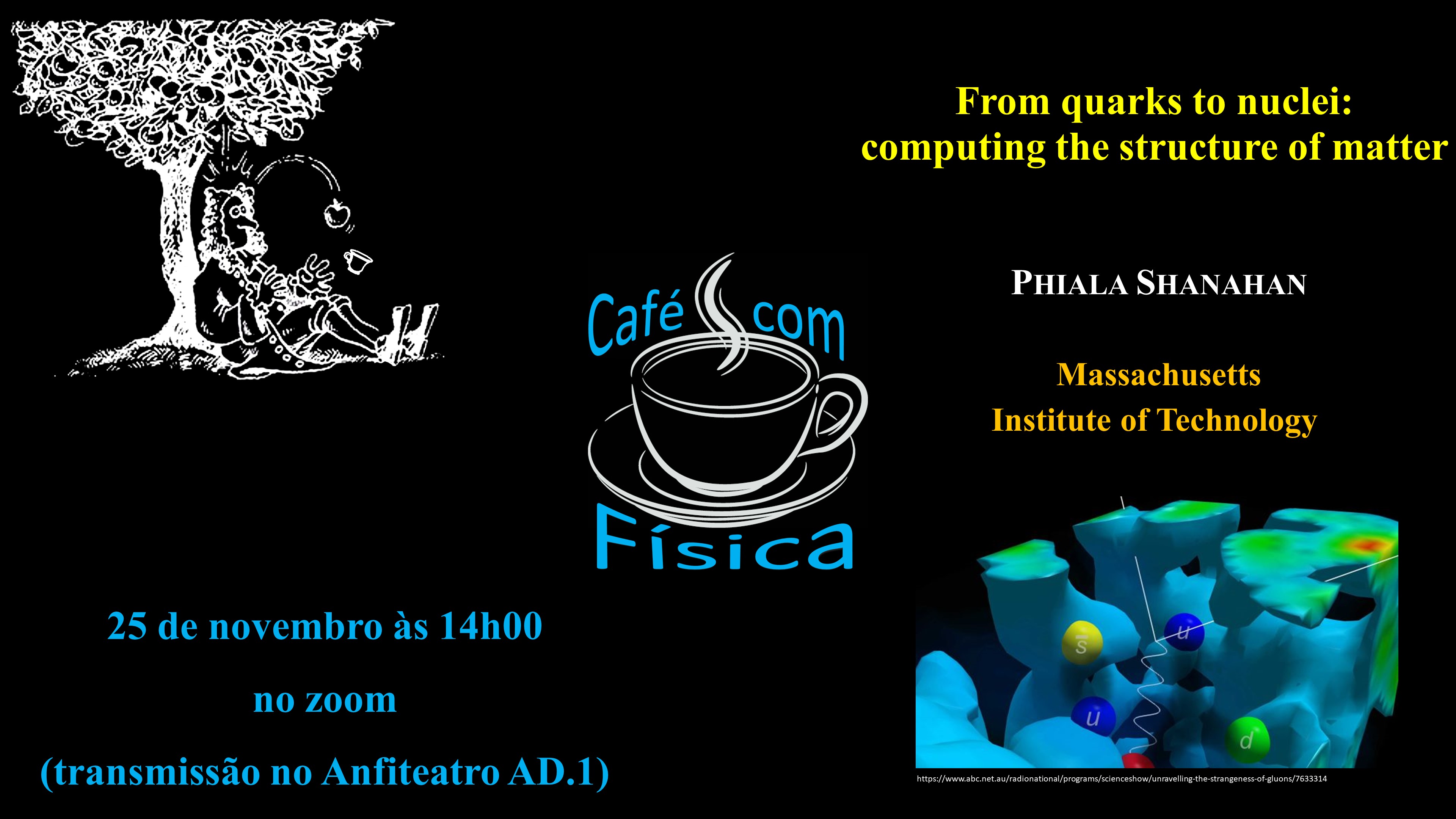From quarks to nuclei: computing the structure of matter
by
Sala de Conferências
Departamento de Física

Our understanding of the structure of matter, encapsulated in the Standard Model of particle physics, is that protons, neutrons, and nuclei emerge dynamically from the interactions of underlying quark and gluon degrees of freedom. In this colloquium, I will give a broad introduction and overview of the numerical lattice field theory approach to studying this structure from first principles, before focusing on some specific examples of recent progress in this field. In particular, I will describe how lattice calculations have given us new insights into the structure of the proton, including recent predictions of the contributions of gluons to its pressure and shear distributions, which will be measurable for the first time at the planned Electron-Ion Collider. I will also discuss how studies of light nuclei are beginning to reveal how the complexities of nuclear structure and reactions arise from the Standard Model, and how this work can provide important theory insights for searches for new physics, such as through dark matter direct detection experiments. Finally, I will explain how provably exact machine learning algorithms are providing new possibilities in this field.
Filipe Veloso e Pedro Costa
